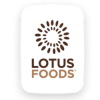UPDATE: The National Organic Standards Board voted to remove carrageenan from the list of approved ingredients on Thursday evening.
In its natural habitat, seaweed can be peaceful and stoic, adding a tranquil presence to the water.
Once it’s harvested and processed, however, it can become one of today’s most controversial food additives: carrageenan.
Carrageenan is a commonly used emulsifier in many foods, keeping items mixed in suspension and improving texture and mouthfeel for products like ice cream, baby formula and deli meats. Carrageenan adds no taste to the product and is easy to get, from a natural source, and effective.
Some research has shown that carrageenan causes digestive problems. Legions of activists — including popular blogger Vani Hari, who is better known as “Food Babe” and farm policy group the Cornucopia Institute — have crusaded against the additive in part because of these medical symptoms.
Manufacturers who use carrageenan have responded by citing scientific research that shows that carrageenan is not a health threat.
Meanwhile some manufacturers have decided to reformulate their products without carrageenan, getting around the controversy. But nothing has happened to definitively halt the product’s use. Carrageenan has a generally recognized as safe designation from the Food and Drug Administration, meaning it can be used in any product.
All that could change today. At its semi-annual meeting in St. Louis, the National Organic Standards Board is considering whether carrageenan is an acceptable ingredient for organic food products. If the board decides that it should stay on the list of approved ingredients, little will change. If the board decides carrageenan is unacceptable, it could be a matter of months until certified organic products would not be able to use it.
And if carrageenan isn’t acceptable for organic products, it could have a domino effect, getting other manufacturers to look toward other emulsifiers and away from the popular seaweed.
“I think it should be a little bit of a wake-up call,” Cornucopia Institute co-founder Mark Kastel told Food Dive.
Why use carrageenan?
Carrageenan has been produced for use in food products since the 1950s, but anecdotal reports say it has been used for centuries. Susan Finn, a registered dietitian and past president of the Academy of Nutrition and Dietetics, told Food Dive that carrageenan is a wonderful emulsifier, minimally processed, and effective at keeping products like baby formula or protein drinks from separating.
“We in the nutrition community feel pretty strongly about the essentiality of carrageenan and the importance of keeping it in the food industry,” Finn said. “…It’s safe, it’s been used for many centuries, it has been used for the last half century in serious health products, … and even the National Organic Standards Board says they can’t find any reason that there’s harmful effects.”
Finn said that she’s not the only one who feels this way about carrageenan. Her former colleagues in the Academy of Nutrition and Dietetics support the use of the additive, she said, agreeing with her that there is no scientific evidence that it is harmful to health.
“We in the nutrition community feel pretty strongly about the essentiality of carrageenan and the importance of keeping it in the food industry.”

Susan Finn
Registered dietitian and past president of the Academy of Nutrition and Dietetics
Some research appears to prove Finn wrong. Studies performed by the University of Chicago and the University of Illinois at Chicago and published in 2011 and 2012 indicated that carrageenan causes gastrointestinal inflammation and leads to glucose intolerance, contributing to Type 2 diabetes. These studies caused a stir among consumers, and other researchers sought to replicate their findings.
In research published this year, biological toxicologist Jim McKim tried very hard to get similar results that show carrageenan’s inflammatory properties, performing the same experiments with even more care. He could not.
“We’re left with this inability to replicate key processes in the mechanisms that have been reported in multiple papers from that laboratory,” McKim told Food Dive. “It’s really been a confounding issue for us. We have really worked hard to try and replicate that data and it’s been absolutely unsuccessful.”
McKim’s research has been published in peer-reviewed journals, standing as a counterpoint to the studies that contributed to much of the controversy over the ingredient.
He was dismissive of other research that indicates carrageenan poses inflammation harm, saying they were performed with a similar but different substance called poligeenan, which is never used in food. Additionally, he said these studies were performed by injecting the chemical into a small area on an animal, an act that is bound to cause inflammation and completely unlike what happens when someone consumes something containing carrageenan. McKim said that carrageenan binds with existing proteins and much of it is absorbed into the body, so there is really not much to cause inflammation.

McKim’s research was funded by manufacturers with a vested interest in the continued use of carrageenan, but he was adamant in saying it didn’t lead to bias. He says he has no vested interest in whether carrageenan stays on the market, and he has other research to do.
“We aren’t going to risk 25 or 30 years creating a false story around a molecule for a company that we don’t even work for. That doesn’t even make sense,” he said.
Why should carrageenan go?
The Cornucopia Institute got involved in the fight against carrageenan without really meaning to, Kastel said. Years ago, when looking at potential conflicts of interest among NOSB members, an analyst examined a sampling of decisions more closely. One that she picked was carrageenan, and she found the scientific evidence against it.
Kastel said that – plus the fact that this analyst’s gastrointestinal discomfort went away when she stopped eating products containing carrageenan – started the advocacy against the additive.
“Our opinion is it should be off of the GRAS list as well,” Kastel said. “There are few more controversial food ingredients. There are few ingredients that have had more scientific scrutiny. And here’s where the rubber meets the road.”
Removing carrageenan from food is one of the Cornucopia Institute’s top issues. Kastel said that every publicly funded study on the additive shows that it causes digestive inflammation. And the institute has collected several stories of people relating their own experiences with carrageenan-related health problems.
Kastel chalked the wildly different findings in scientific studies up to different sides of the debate trying to back up their claims – much like tobacco, climate change and fracking, he said.
Cornucopia Institute’s research and advocacy has focused on the organic industry, and Kastel said it has paid off. Many companies either have reformulated products without carrageenan, or are in the process of doing that. And while Kastel’s data on reformulation is anecdotal, the institute keeps a list of products made without the controversial additive.
“There are few more controversial food ingredients. There are few ingredients that have had more scientific scrutiny. And here’s where the rubber meets the road.”

Mark Kastel
Co-founder, The Cornucopia Institute
That list is proof to Kastel that carrageenan is not an essential ingredient to organic products, which is vital to Cornucopia Institute's argument.
“Every single product category that some manufacturer has or is still using carrageenan, competitors have a formulation that does not include it,” Kastel said. “You can buy plant-based beverages, … soy milk, almond milk or something else. There are brands with carrageenan and brands without it. …Some of what’s been substituted not only is an alternative, proving that it’s not necessary, but in some cases, it’s been substituted for materials that are certified organic. And if certified organic alternatives are available, you can’t have something on the list.”
What happens now?
The 15-member NOSB, which is an advisory panel to the U.S. Department of Agriculture, has the job of deciding whether carrageenan should remain approved for use in organic food products. The board reviews each additive to organic food every five years, voting on whether they should stay on the approved list.
The board’s meeting started in St. Louis on Wednesday, and the 15 volunteer members – chosen by members of the organic food community – spent much of the day listening to public testimony. Discussion and voting on carrageenan is scheduled for Thursday afternoon.

Carrageenan was already thoroughly discussed and voted on by the board’s Handling Subcommittee, which met in August to come up with a recommendation to the full board. The seven-member subcommittee recommends removing carrageenan from the approved list.
The reason for the recommendation is because members see alternatives, not because they believe any of the science that says the substance causes inflammation.
“We find that the body of scientific evidence does not support claims of widespread negative human health impacts from consumption of carrageenan in processed foods,” the subcommittee report says. “We appreciate that there may be some individuals who have sensitivity to the material, but even that is not entirely clear from the body of scientific research.”
In order for carrageenan to be taken off of the approved list, two-thirds of committee members need to support the subcommittee’s recommendation. If that action is taken, the regulatory process to order its removal could take about a year.
“We find that the body of scientific evidence does not support claims of widespread negative human health impacts from consumption of carrageenan in processed foods.”

National Organic Standards Board subcommittee report
Advocates for allowing the substance say they hope it continues to be an option for organic food producers. Mano Basu, technical lead on consumer product safety and regulatory affairs for the Grocery Manufacturers Association, said keeping carrageenan on the list is vital.
“There may be alternatives, but none that work as well as carrageenan does,” he said in a written statement.
Regardless of the NOSB decision, McKim said manufacturers should look at all options and not be afraid of carrageenan.
“What industry has to be careful of is they can’t take everything off the market just because they don’t want to be in conflict with consumers. And the reason for that is consumer groups will go to the next molecule. And the next molecule. And pretty soon, we won’t have anything that we can use in food that is beneficial to the taste and consumption for humans. … Do the best science around the molecules and stand by the data.”






















